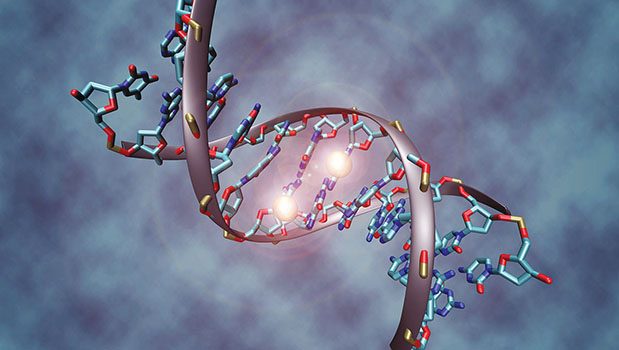Methylation Defects Are Damaging Our Health
When we talk about DNA methylation, we are referring to the epigenetic (environmental) component of gene expression. If genes are the building blocks of DNA, the actual blueprint for the manufacture of all the proteins to create a living thing, then epigenetic information provides the instructions for how, where, and when the genetic information should be used. In humans, the major form of epigenetic information is DNA methylation. It is the way that biological systems move molecules around efficiently to where they are needed.
DNA methylation is the continuous biochemical process of shuttling of specialized clusters of atoms, occurring at more than a billion times per second throughout the body to renew and repair bones, joints, organs or tissue. For example, we need methyl groups to make proteins like collagen arrive onsite for bone repair. We also need methylation to transport the many products of cell metabolism.
Small defects in the methylation process are common. Think of it like any rapidly moving system that runs 24/7 and can replicate itself. A one-off error is normalized as a genetic variant. These small genetic variations add up and can sometimes cause problems. An example of this is a genetic variant for the MTHFR gene that affects folate processing.
Folate is a B vitamin that helps transform food into fuel. It directly aids in the production of DNA and RNA to produce essential energy during growth periods such as infancy, pregnancy and adolescence. Almost every cell in the body needs folate to perform optimally, and folate itself is crucial for methylation to occur. When an essential nutrient such as folate is unable to be utilized for a system-wide biochemical process called methylation, which allows our bodies to grow, renew and repair, health consequences range from difficult conception for mothers-to-be to an increased risk for heart attacks and strokes among the elderly.
Folate is what we call a biomarker for methylation. Methylation anomalies play a direct causal role in tumorigenesis (cancer) and genetic disease, and are a critical area of scientific inquiry among researchers studying the human genome. We need to be able to reverse the damage to our bodies from modern-day stressors such as inflammatory foods, toxins and pollutants by bolstering methylation processes. We must return to whole, unprocessed foods choices such as beef liver, egg yolk, broccoli and turnip greens to receive enough naturally occurring folate in our diet; that and added supplementation of methyl groups may be sufficient to reverse disease.
The science of nutrition has historically been focused on preventing and treating diseases caused by vitamin and mineral deficiency. It’s been caught up in the past. Now, the new frontier of nutrition science is looking at nutrient-related interactions at the genetic, protein and metabolic levels, and is trying to solve the problem of diet-related disease from a fresh perspective.




























